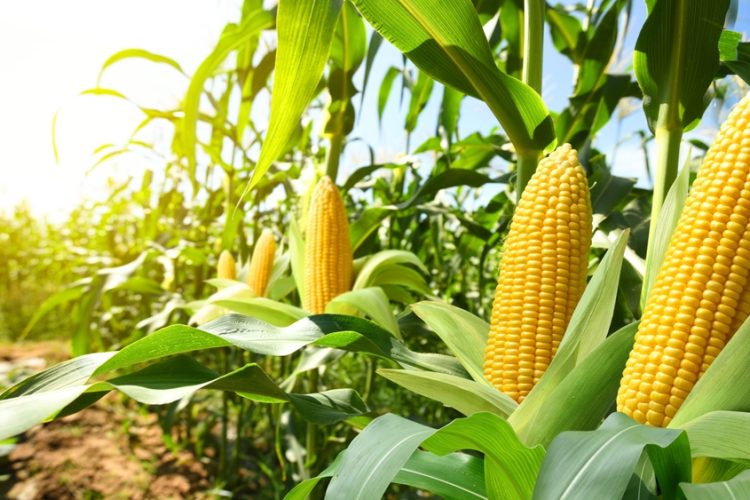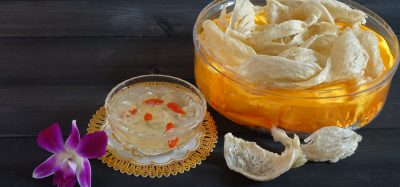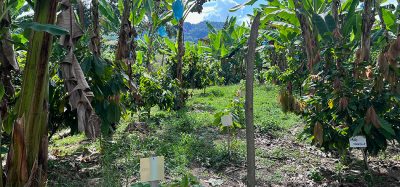Tecnológico de Monterrey develops nutraceutical corn to address the global food and public health crisis
- Like
- Digg
- Del
- Tumblr
- VKontakte
- Buffer
- Love This
- Odnoklassniki
- Meneame
- Blogger
- Amazon
- Yahoo Mail
- Gmail
- AOL
- Newsvine
- HackerNews
- Evernote
- MySpace
- Mail.ru
- Viadeo
- Line
- Comments
- Yummly
- SMS
- Viber
- Telegram
- Subscribe
- Skype
- Facebook Messenger
- Kakao
- LiveJournal
- Yammer
- Edgar
- Fintel
- Mix
- Instapaper
- Copy Link
Posted: 21 January 2025 | Ben Cornwell | 1 comment
The nutraceutical corn developed by scientists at the FEMSA Biotechnology Center at Tecnológico de Monterrey promises enhanced nutrition and disease prevention, offering a sustainable solution to global food challenges.


In Mexico, scientists at the FEMSA Biotechnology Center at Tecnológico de Monterrey are reimagining one of the world’s most vital crops. Their work on nutraceutical corn has led to a variety that not only offers enhanced nutritional value but also helps combat chronic diseases such as diabetes and obesity.
Under the leadership of experimental biologist and researcher Dr. Silverio García-Lara, this 25-year project addresses global challenges, from malnutrition to the impacts of climate change, offering a sustainable path forward for food production. “The global food crisis is a multifactorial reality exacerbated by climatic, political and economic phenomena,” explains García-Lara.
“Although corn is one of the most produced and consumed cereals in the world, its nutritional value is limited.”
Addressing nutritional gaps
As one of the world’s most important crops, with an estimated production of 1,23 billion metric tonnes for the 2023/2024 season, corn is a dietary staple for hundreds of millions of people worldwide. Yet, conventional varieties lack the nutritional density required for optimum health. Recognising this gap, the FEMSA Biotechnology Center team has used traditional breeding methods to enhance the grain’s protein, fatty acid and carbohydrate content.
“This nutraceutical corn has the potential to transform how we nourish ourselves,” García-Lara states. “It is not just a matter of food security but also public health.” By incorporating antioxidant compounds, peptides and beneficial fatty acids, the nutraceutical corn offers both essential nutrients and health-boosting properties.
Traditional techniques, advanced results
Importantly, the genetic improvements achieved in their nutraceutical corn do not involve genetically modified organisms (GMOs). Instead, the researchers employ traditional crossbreeding and enhancement techniques, an approach used in agriculture for decades. These techniques allow for selecting and combining the best genetic traits of corn, leveraging the rich diversity of Mexico’s 58 native corn varieties.
These methods allow for the selection of traits such as pest resistance and resilience to environmental stress, leveraging the world’s largest corn germplasm bank located in Mexico.
“Thanks to the rich genetic diversity of Mexican native corn, we have been able to make significant improvements in grain quality,” says García-Lara. By avoiding GMOs, the team ensures a natural and healthy product for farmers and consumers alike.
Local and international collaboration
The development of nutraceutical corn has been a collaborative effort, driven by strategic partnerships with prominent Mexican and international organisations. Key contributors include the International Maize and Wheat Improvement Center (CIMMYT), the National Institute of Forestry, Agricultural and Livestock Research (INIFAP), and the Food and Agriculture Organization of the United Nations (FAO). These alliances have facilitated knowledge sharing and significantly accelerated the project’s progress.
In the private sector, collaboration with Kellogg’s Mexico has supported the production of high-quality yellow corn, reducing reliance on imported grains from the US. This six-year project enabled farmers in Bajío and Pacific regions to produce high-quality corn that met the company’s standards.
Addressing climate change and disease resistance
Climate change has posed new challenges for farmers, especially in regions with extreme conditions. The improved corn developed by Tecnologico de Monterrey is not only more nutritious but also more resilient. These new corn varieties are resistant to pests, diseases and adverse environmental conditions such as poor soil, prolonged droughts and extreme rainfall.
The team has also developed corn varieties resistant to aflatoxins — harmful toxins produced by fungi under climatic stress — addressing critical food safety concerns.
Enhanced nutritional value
Among the project’s most significant achievements is the development of corn with protein levels exceeding 14 percent, far surpassing the three to four percent found in conventional corn. These high-quality protein maize (QPM) varieties represent a major step forward in combating malnutrition. Additionally, the fatty acid content has been increased to 10 percent, enhancing the grain’s energy contribution, while antioxidant compounds further promote health benefits and help prevent chronic degenerative diseases.
Dr. García-Lara and his team are showing the world how blending scientific innovation with traditional methods can tackle some of the most pressing global challenges. For the food industry, the development of nutraceutical corn presents an exciting opportunity to reimagine staple crops as a means of enhancing health and resilience in the face of today’s growing challenges.
Related topics
Food Security, Genetic modification (GMO), Health & Nutrition, New product development (NPD), Nutraceuticals, Research & development, Technology & Innovation, The consumer, World Food









A ground-breaking development in food security and public health is Tecnológico de Monterrey’s creation of nutraceutical corn. By enhancing protein, fatty acid, and antioxidant content using non-GMO crossbreeding techniques, this innovation addresses malnutrition, chronic diseases, and climate resilience. Its impact is further bolstered by strategic collaborations on a global and local scale. Food Research Lab plays a role in scientific validation, formulation, and optimization, ensuring nutraceutical products like this are safe, effective, and market-ready for sustainable health solutions.